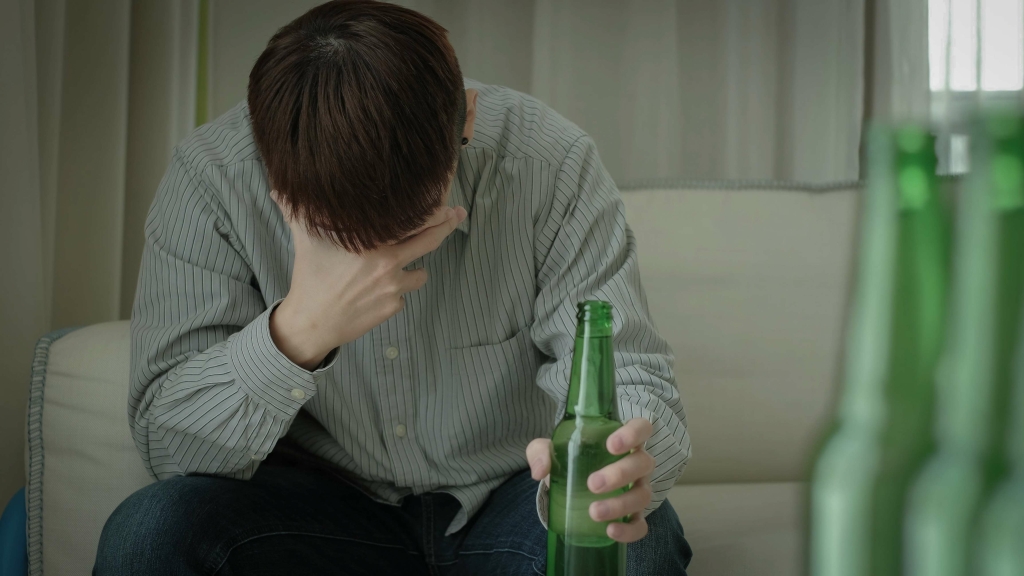Content
The mean scores can be obtained by simply summing up the individual items score on each subscale. The tool was translated into Hindi and retranslated into English after seeking validation from language experts. Your teen should understand that drinking alcohol comes with specific consequences. But don’t make hollow threats or set rules that you cannot enforce. Encourage your loved one to open up about the reasons why they’re abusing alcohol. Are they stressed, bored, lonely, or anxious, for example? Many different factors could be contributing to their drinking, but to stay sober your loved one will need to address any underlying causes.
No matter where you are across the country, you could be certain a rehabilitation center is nearby. Finding one is not the problem, as is finding the right treatment center. With nothing to do but think, the defendant contemplates the pain that their crimes have caused in others. The defendant will think about how much grief he caused the victim’s family, and the shame will become more intense. Imagine a person who has committed murder goes to trial.
Look at What You Can Control
While tough love may have a small part in helping an alcoholic spouse, this is not the place for it. Human nature sometimes forces us to shift the blame because it’s easier to understand a problem if we know its source. But the cause of addictions isn’t so black and white, so there’s never really just one thing to blame. Most importantly, the person with the addiction is not at fault for the disease. SMART Recovery, a non-12-step support group for those affected by familial alcohol abuse.

You may feel shame because of the stigma of substance use and you may feel shame about having to ask for help. Shame is common and it’s also one of the most corrosive emotions. Like any wound kept hidden, alcoholism and anger it only gets worse with time. The following are some suggestions for coping with and healing shame. Indulging in self-care is not selfish, especially when you’re helping someone dealing with addiction.
How to Make Exercise a Regular Part of Your Addiction Recovery
Stacy Mosel, L.M.S.W., is a substance abuse specialist, psychotherapist, and licensed social worker. Adult Children of Alcoholics/Dysfunctional Families. This program is another 12-step program geared specifically for those who grew up in dysfunctional or alcoholic homes. Not sure if you or your loved one is suffering from alcoholism?

And and and neuroscientists actually call that part brain. I’ve got clients that have told me when they feel ashamed, they feel pain in their chest, they feel pain in their heart, and I think that’s quite literal. And if you drop down to the the abdomen area, you’re aware of this research. More recently, in fact, the guy that’s done the research is in India, it’s Steven porges. And he’s been looking at their cranial nerves that extend down from the head down into the body, the 10th cranial nerve called the vagus nerve, it extends all the way down into into the gut area. And there’s a lot of nervous fibers centralized in the abdomen. Neuroscientists call this the gut brain, not meant to be disrespectful, it’s just what they call it.
Ways to Cope with Your Emotions
Most people with a substance use disorder know about shame. It may be the central feature of their emotional lives. If you struggle with substance use, you likely feel shame on several levels. There may be shame resulting from physical, emotional, or sexual abuse, whether as a child or as an adult.

Don’t feel that you should have to control these feelings on your own. Getting the help you need is https://ecosoberhouse.com/ important for your life and your health. If you have any of these feelings, talk to your doctor.
Six Easy Ways to Eat Healthier for Addiction Recovery
“Sometimes I think about what we went through and I can’t quite believe that we got through it. There were a lot of bad times.” Facts for Families© information sheets are developed, owned and distributed by AACAP. Hard copies of Facts sheets may be reproduced for personal or educational use without written permission, but cannot be included in material presented for sale or profit. All Facts can be viewed and printed from the AACAP website (). Facts sheets may not be reproduced, duplicated or posted on any other website without written consent from AACAP.
Depending on the intensity of the person’s disorders, treatment could be nothing more than a few group therapy sessions. Violence, aggression as well as eating disorders are common causes of shame.
Feelings and Cancer
Hidden shame, or internalized shame, might come out through talking down to those you teach or supervise, people of a different class or culture, or someone you judge. Another symptom is frequent idealization of others, because you feel so low in comparison.
- If you’re ready to experience a life free from addiction, we’re ready to help you get there.
- According to a national survey in 2019, 20.4 million Americans had experienced a substance use disorder over the past year.
- Shame and guilt are so powerful, because they cause a person to experience distress on account of their own actions or words.
- It’s natural to close off your heart as a form of self-protection.
- Psychology measures stress by measuring elevations in stress hormones, the two primary stress hormones are cortisol and adrenaline.
Alcoholics have lost control of their lives and their fates, which motivates their frustration and profound personal dissatisfaction. I wasn’t a bad person trying to get good, I was a sick person trying to get well. ….it’s like bursting a pimple and all this gunk comes out and then you clean it up and you can start healing. Acknowledging shame so that you could stop it from having power over you in addition seemed to be part of the recovery process. …hearing other people tell their stories…it’s not just me that’s done that.
Drugs: Education, Prevention and Policy
At the center of many mental health issues — including addiction and codependency — lies shame. Your needs must be met consistently in order for you to feel safe and develop secure attachments. Alcoholic families are in “survival mode.” Usually, everyone is tiptoeing around the alcoholic, trying to keep the peace and avoid a blow-up. If youre an adult child of an alcoholic, you feel different and disconnected.
